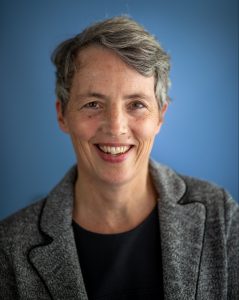As a nurse practitioner, I provided house calls on behalf of Johns Hopkins throughout West Baltimore. I had patients who couldn’t get downstairs and had to drop their keys from the second floor for me to find in the grass. I had other people who greeted me on their hands and knees because they couldn’t walk around their house. I was there to treat their blood pressure and diabetes. But as I looked into it, I saw that the number one addressable problem for people going to nursing homes was that they couldn’t do basic things, like bathing or getting dressed.

We started Community Aging in Place–Advancing Better Living for Elders (CAPABLE) 10 years ago, along with my colleague Laura Gitlin, dean of the College of Nursing and Health Professions at Drexel University, to holistically address these needs. In that time, CAPABLE has served 5,000 people in 45 places across 23 states. The home-based program connects low-income older adults with an occupational therapist, a nurse, and a handyman. CAPABLE is one of those rare instances in medical initiatives that is completely participant directed. Together, they identify problems and goals — what does the person want to be able to do?
CAPABLE focuses on physical function and housing as health, which can include lowering cabinets and repairing holes in the floor to improve safety in the home. These matter more than someone’s exact blood pressure level but are almost unaddressed in healthcare. They’re also key to health expenditures, particularly in hospitalizations and nursing home admissions. Although what we do is non-medical, it prevents real medical costs — on average $22,000 of savings for a $3,000 expenditure.
Much of CAPABLE’s expansion, including the ability to scale the program to other cities and provide training, is thanks to philanthropy. Unlike a grant, which can take a few years from application to implementation, philanthropy is nimble. Funds can be applied right away. And individual donors are excited and proud that their resources are allowing older adults they’ve never met to have robust lives and age with independence and dignity.
We’re lucky to have a growing population of older adults in our communities. It’s an opportunity for our country to learn from their experience. If we can create a baseline of support for everyone to be able to age with independence and dignity, we can unleash so much creativity, mentoring, and wisdom.
For individual inquiries or more information, please contact: [email protected].
Interested in supporting older adults who wish to age in their communities?
Topics: School of Nursing, Strengthening Partnerships